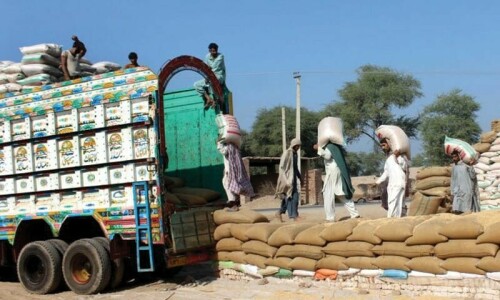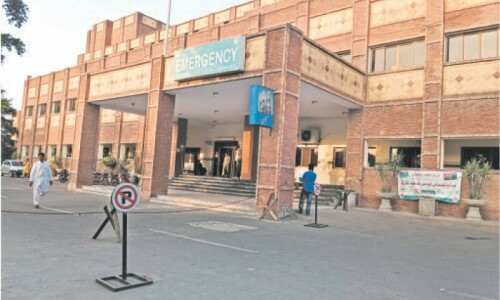LAHORE: Faisalabad has returned to the list of districts affected by poliovirus. One of the reasons seems to be a major decline in the targeting of children in the city.
According to a recent survey, an average of 50 per cent drop was reported in the immunisation coverage in Faisalabad where poliovirus has been detected after over two years, lamented a senior official while talking to Dawn.
He said that experts believed that the Punjab government’s lack of interest towards combating the crippling disease was another reason for the returning of the virus. There were three high-risk districts in Punjab, including Lahore, Rawalpindi and Dera Ghazi Khan, where experts were already struggling to eradicate the disease.
The official said the environmental samples collected from Faisalabad’s Achkera pumping stations had tested positive for polio, with linkages found to the virus already circulating in Lahore, prompting calls for quick vaccination of children.
“Poliovirus circulation in a given area represents the existence of unimmunised children, who missed vaccination during routine immunisation and door-to-door anti-polio campaigns,” the official said.
The campaign data from drainage areas of Achkera during the last three immunisation drives indicated that unimmunised children not only posed a risk to themselves, but also other children around them by shedding the virus in the sewage.
The district will be made part of the polio case response planned on Feb 18 in Lahore and Rawalpindi, the official said. Faisalabad district has shown signs of poliovirus at a time when the authorities have been struggling to contain the spread of the disease in Lahore and Rawalpindi for 10 months.
Lahore, Rawalpindi and Dera Ghazi Khan districts were in the spotlight in 2018 due to isolation of three wild poliovirus clusters. The viruses with lineages of Bajaur and Karachi, and probably imported with movement from high-risk mobile populations from the core reservoirs, have been detected multiple times in these three districts -- pointing towards operational issues that have created gaps in supplementary immunisation activities.
The number of districts testing positive for environmental poliovirus had increased to three in 2018 as compared to two in 2017, calling for sustained peak performance across all high-risk districts.
The official said that in order to meet the new challenge, the prime minister’s focal person for polio eradication in Pakistan, Babar Bin Atta, suggested increasing the polio vaccination age of children in the high-risk districts from five to 10 years.
This strategy had yielded fruitful results when applied in Islamabad and experts later reported that the city tested negative for the virus.
Published in Dawn, February 9th, 2019














































